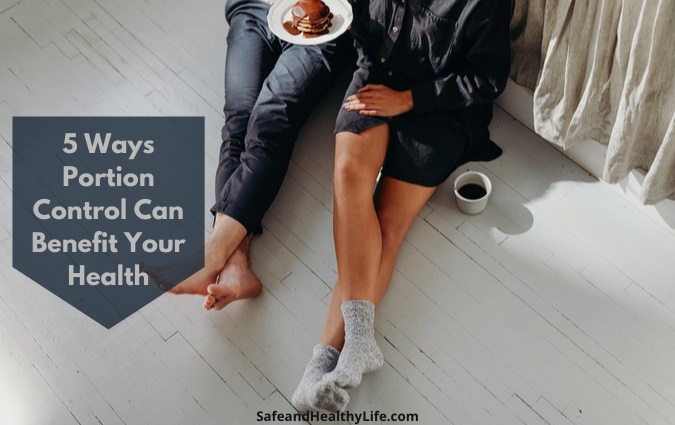
Overeating is easier than you may realize. If you compare common portion sizes of some of your favorite foods to the recommended servings, you will realize that what seemed like a healthy snack was actually enough to be an entire meal.
Excess calories add up, leading to weight gain, poor eating habits, and health complications. Utilizing portion control can help you overcome these problems and achieve better health.
1. Improves Digestion and Gut Health
It isn’t only certain types of foods that can cause stomach upset. How you eat plays a major role in digestion, too.
If you’ve ever wondered “can overeating cause bloating”, wonder no more because it certainly can. When you eat large portion sizes, your body has to struggle to process that overload. It has to make extra digestive enzymes.
At the same time, digestive organs like your stomach and intestines stretch to accommodate the larger portions passing through.
The muscles that support digestive processes also need to work harder to move food and waste along. All of that can combine to create gas, floating, and acid reflux.
2. Encourages a Healthy Relationship With Food
Food does a lot more than provide nutrients. It can be a source of comfort, relief, and guilt. If you are a stress eater, then you know this all too well.
Portion control helps you establish a healthier relationship with food and your body. As you adopt smaller portion sizes, you eliminate the feast and famine cycles of hunger and binging and your body learns to expect food on a regular basis.
You can also stop counting calories or worrying about every last detail of your diet since, even if you choose a less than ideal meal, you won’t overindulge in it.
3. Aids in Maintaining a Healthy Weight

Photo by alan KO from Unsplash
When you consider the difference between serving sizes and portions, it is easy to see why so many people struggle to achieve and maintain a healthy weight.
Overeating, which is often just a result of eating what is put on your plate, can cause your stomach to expand. As your body adjusts to eating appropriate portions, your stomach will begin to shrink back to its normal size.
That means you will full faster and longer. As a result, you will consume fewer calories throughout the day and be better able to control your weight.
4. Regulates Blood Sugar Levels
Blood sugar, or glucose, is obtained as the foods you eat break down during digestions. It serves as a fuel source, basically providing the energy you need to go about your day.
When blood sugar remains at a relatively stable level, your energy will also remain constant. Many people are aware that what you eat affects blood sugar levels, but many don’t realize that eating patterns are also very important.
Binge eating and periods of fasting can wreak havoc on how foods are processed within your body. They result in spikes and valleys in glucose, which can lead to serious complications for people with diabetes or other, related, conditions.
5. Ensures the Right Balance of Nutrients
Some diets place serious restrictions on certain food groups which can leave you craving banned foods and result in binge eating.
That’s because your body isn’t getting all of the nutrients it needs to thrive. It’s a vicious cycle as your body struggles to work without the right amount of calories, proteins, or carbohydrates to make energy.
You may feel tired, listless, or have trouble concentrating. Headaches are also pretty common. Instead of finding long-term success, you end up binging and feeling guilty afterward.
If you have been on a diet that leaves you feeling unfulfilled, portion control can help you regain control. Instead of avoiding foods, it allows you to have a variety of different things so you can meet your nutritional needs without feeling hungry -no cravings, binging or guilt required. Related.
Whether you are looking to have a healthier relationship with food, control cravings, or achieve a healthier lifestyle, portion control can help. Take time to learn what suggested servings look like and gradually reduce your meal and snack sizes to better align with that.
About The Author:
Stacey Smith is a freelance health writer. She is passionate to write about women’s health, dental health, diabetes, endocrinology, and nutrition and provides in-depth features on the latest in health news for medical clinics and health magazines.




